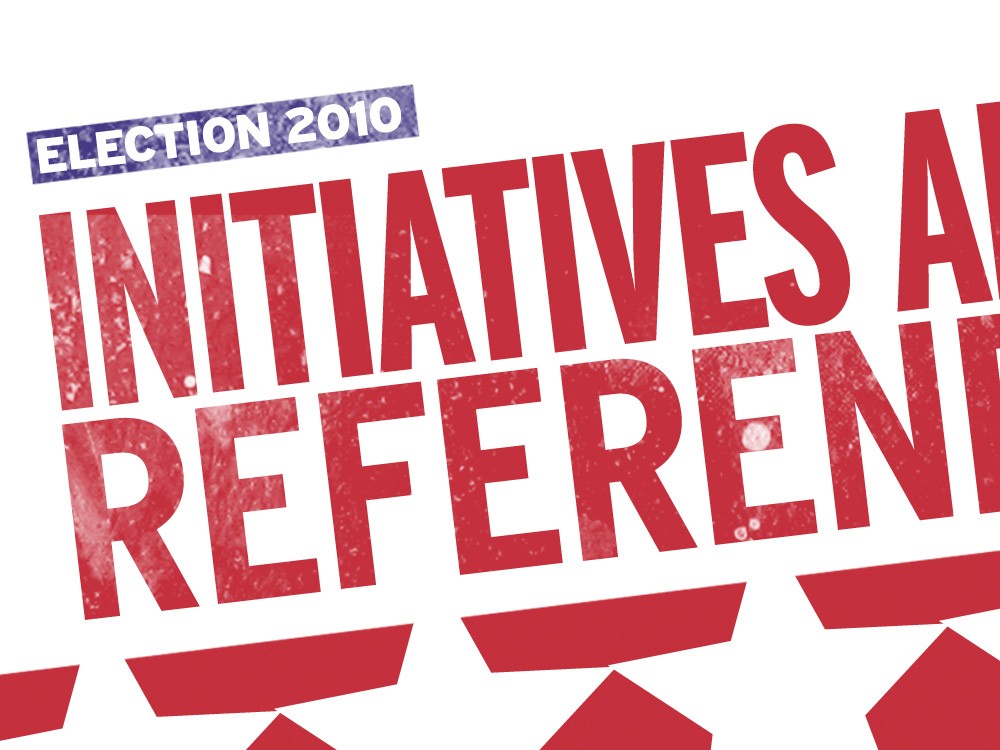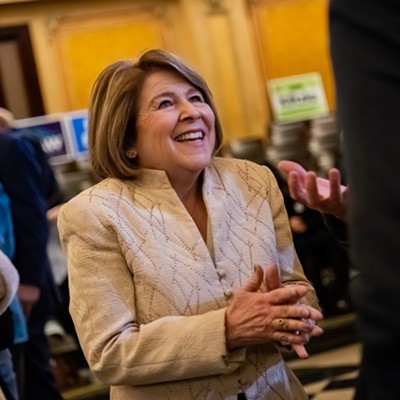It´s hard to get a straight answer on Initiative 1098, which would tax the wealthiest 1.2 percent of Washingtonians.
Bill Gates Sr., father of the Microsoft co-founder, is for it. The Association of Washington Businesses, the state’s chamber of commerce, is against it, calling it “devastating for Washington’s overall competitiveness.” Main Street Alliance, which represents 2,000 small Washington businesses, promises it will “reform our upside-down tax system.”
Talk to Janine Vaughn, owner of Revival Lighting in downtown Spokane, and she’ll tell you the initiative will be a financial boon for her business. Talk to Matt Sonderen of Sonderen Packaging, and he’ll tell you the measure will hurt his.
Clearly, the measure is complicated: Initiative 1098 would reduce state property taxes and the number of businesses paying Business and Occupation taxes, while adding state income taxes for wealthy individuals.
If passed, it would add around $2 billion for funding of education and health care across the state. If passed, 1098 would create Washington’s first-ever income tax.
That tax, however, would hit only the rich. For those filing singly, only income over $200,000 — more than three times the salary of the average Inlander reader — would be taxed. For those filing jointly, only income over $400,000 would be taxed.
Opponents note, however, that some small businesses are “pass-through” corporations, for which the state counts business income as their personal income. So any profits made by the corporation are “passed through” to the owner, who counts it as income. In most cases, reinvestments can be counted as a business expense, which means the money wouldn’t be counted for the tax. The trick is ensuring it’s done properly.
“Any business owner with a halfway decent accountant should only pay federal and state income tax on the portion of their business profits that pass through as their personal income,” says Marilyn Watkins, policy director for the Economic Opportunity Institute.
Sonderen Packaging, a $20 million-a-year business that employs 110 people, is a pass-through corporation. In some years — though not recently, with the bad economy — the business might earn enough profit to be vulnerable to the tax.
Joshua Welter, with the Main Street Alliance, says that’s rare. According to the Economic Opportunity Institute, only 10.4 percent of “pass-through” businesses in Washington report more than $200,000 a year. And around 85 percent of those file jointly — meaning they are immune until they start making more than $400,000.
Welter believes much of the opposition comes from wealthy CEOs — that top 1.2 percent — whose own personal portfolios would be the most vulnerable.
If Initiative 1098 passes, the number of businesses exempted from the Business and Occupation tax would increase as well. About 136,000 businesses currently pay no B&O taxes but, under 1098, the state Department of Revenue estimates that an additional 118,000 would avoid all B&O taxes, while 39,000 would see reductions.
In all, a full 80 percent of businesses would pay no B&O tax, saving them as much as $4,800 a year. It’s certainly not enough to hire extra workers, but Welter says even that little bit can matter: “It can be the difference between whether they’re able to keep people on staff or lay people off, or buy new equipment or signage to help them increase business.”
Vaughn says it will save her Revival Lighting business $1,900. Combine that with the property tax reduction, and the health care rebate, and she will rack up $6,000 in savings.
“That $6,000 probably will put back all of our workers to full-time,” she says.
Sonderen, however, would be unaffected by the B&O tax reduction because the company makes too much revenue. He says the property tax reductions are “inconsequential.” Mostly, he’s concerned that adding an income tax on the rich will make Washington a less appealing place for future businesses to locate — a worry both for the state’s economy and the number of businesses who need packaging.
I-1053
If Initiative 1053 looks familiar, that’s because you may have already seen it. Three times. Such an initiative has been approved in 1993, 1998 and 2007.
Initiative 960 in 2007 raised the number of votes the state Legislature had to gather in order to increase taxes. A two-thirds majority in the Legislature — not an easy threshold to cross — was needed to raise taxes,but last session, state lawmakers got rid of the requirement. (After two years, the Legislature can edit citizen initiatives.)
But Tim Eyman returns again, hoping to reinstate the two-thirds requirement with 1053. Both sides use the dire budget situation of the state as a talking point. The $3 billion budget shortfall, warns initiative supporters, makes the specter of raising taxes almost a certainty. But that same budget shortfall, counter opponents, means the state will be forced to gut health care and education if it can’t consider all available options.
I-1107
You can’t pay for a 99-cent Snickers bar with a crisp $1 bill anymore. Not without bringing along a few pennies. To deal with the budget deficit this year, lawmakers subjected candy, soda, bottled water and some processed foodstuffs to a new sales tax.
Initiative 1107 would reverse those. The campaign “Stop the Tax Hikes on Food and Beverages” refers to the legislation as “grocery taxes” and argues that such taxes not only hurt the poor and middle class, it sets a dangerous precedent of taxing food.
But opponents scoff at the idea. Candy and soda aren’t exactly necessities, they say. And while select foodstuffs are currently taxed, those are a clear minority of what the initiative addresses. The measure would eliminate $130 million in tax revenue for candy, soda and bottled water. Opponents claim that eliminating this money would result in deeper cuts to social programs.

























